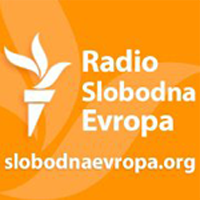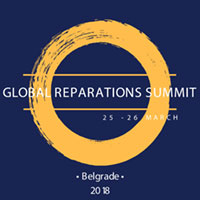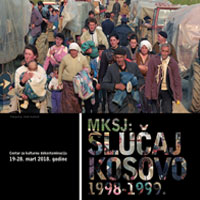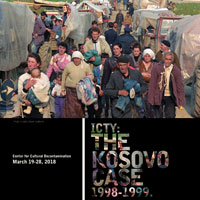(srpski) Javni čas o zločinima srpskih snaga na Kosovu

Sorry, this entry is only available in srpski.


Sorry, this entry is only available in srpski.

Sorry, this entry is only available in srpski.

 On 25-26 March 2018, the Global Initiative for Justice, Truth and Reconciliation (GIJTR), of which the Humanitarian Law Center is a member, organized the Global Reparations Summit in Belgrade, Serbia.
On 25-26 March 2018, the Global Initiative for Justice, Truth and Reconciliation (GIJTR), of which the Humanitarian Law Center is a member, organized the Global Reparations Summit in Belgrade, Serbia.

 The Humanitarian Law Center (HLC) and the Humanitarian Law Center Kosovo published in 2014 the list of individuals who died as a consequence of NATO bombing of the Former Republic of Yugoslavia. According to this list, the NATO attacks killed a total of 754 people: 454 civilians and 300 members of the armed forces. 207 civilians were of Serbian and Montenegrin ethnicity, 219 were Albanian, 14 civilians were Roma, and 14 were of other nationalities. From among members of armed forces, a total of 274 members of the VJ/MUP of Serbia and 26 members of the KLA were killed.
The Humanitarian Law Center (HLC) and the Humanitarian Law Center Kosovo published in 2014 the list of individuals who died as a consequence of NATO bombing of the Former Republic of Yugoslavia. According to this list, the NATO attacks killed a total of 754 people: 454 civilians and 300 members of the armed forces. 207 civilians were of Serbian and Montenegrin ethnicity, 219 were Albanian, 14 civilians were Roma, and 14 were of other nationalities. From among members of armed forces, a total of 274 members of the VJ/MUP of Serbia and 26 members of the KLA were killed.

The Serbian war crimes prosecution’s draft strategy for 2018-2023 does not define priorities for prosecutions, indicators for measuring success, or deadlines for accomplishing objectives, rights campaigners claim.
Serbia’s as-yet-unpublished draft war crimes prosecution strategy for the next five years – a copy of which has been obtained by BIRN – has attracted criticism from human rights groups that allege the document does not properly address the country’s continuing failure to prosecute high-level suspects.

 The Humanitarian Law Center (HLC), in cooperation with the SENSE Center for Transitional Justice (Pula), the Documentation Center Kosovo, and Documenta – Center for Dealing with the Past, hereby invites you to the opening of the exhibition „ICTY: the Kosovo Case 1998-1999“. The opening will take place on March 19th 2018, at 7pm, at the Center for Cultural Decontamination (Birčaninova 21, Belgrade).
The Humanitarian Law Center (HLC), in cooperation with the SENSE Center for Transitional Justice (Pula), the Documentation Center Kosovo, and Documenta – Center for Dealing with the Past, hereby invites you to the opening of the exhibition „ICTY: the Kosovo Case 1998-1999“. The opening will take place on March 19th 2018, at 7pm, at the Center for Cultural Decontamination (Birčaninova 21, Belgrade).
Through video materials and selected documents, this multimedia exhibition shows how crimes committed during the 1998-1999 armed conflict in Kosovo were investigated, reconstructed and prosecuted by the International Criminal Tribunal for the former Yugoslavia (ICTY). It presents facts about the crimes committed by Serbian military and police forces against the Albanian population in 1999, as well as the crimes of the KLA during 1998.


On January 22, 2018, the Ministry of Justice published a working text that envisages amendments to the Constitution in the provisions governing the work of the judiciary. The Humanitarian Law Center (HLC) would like to point out that the proposed amendments to the Serbian Constitution reduce the currently attained level of independence of judges, as well as the autonomy of prosecutors, only to relocate the existing political influence on the judiciary from the National Assembly to the High Judicial Council, through the “distinguished lawyers” who constitute this body and independently have the majority in making decisions, as well as the authority to introduce institutes and institutions through which the executive power can directly exercise political influence on the election of judges and prosecutors. Bearing in mind the previous work of the Office of the War Crimes Prosecutor (OWCP) and of the Special Council of the Higher Court in Belgrade regarding war crimes, characterized by the small number of indictments, the non-processing of medium and high-ranking members of the army and police, the absence of political support for trials and the delays in proceedings, the HLC considers that the proposed amendments to the Constitution will only contribute to the continuation of such a manner of working, owing to political pressure, which is bound to come from the change in the composition of the High Judicial Council and of non-judicial bodies that would be receiving quasi-judicial powers.

Sorry, this entry is only available in srpski.